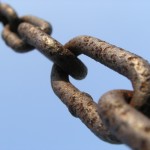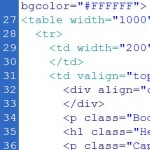28 Oct 2013
A story to boost your faith in the Future of Journalism, and warm your heart

If you want to take a break from the ginned-up debates that dominate the Twitter feeds of journalists and journalism professors when they’re not being distracted by the latest shiny things from the widget mills — and God knows, we all need a break from that — I’ve got something for you. Something that can
25 Oct 2013
Could La Presse’s tablet app fill the gap in the logic behind giving away news for free?

One reason I’m not a fan of paywalls for news sites is that, with a few exceptions, the case for them seems to come down to: If they don’t work, we’re doomed, ergo they will work. I may have shown up for only four out of every five sessions of my 7 a.m. college Logic
24 Oct 2013
The art of the link: Do’s and don’ts for embedding links in stories

It dismays me that people still have to write posts defending content curation online, as Sarah Arrow did recently on SteamFeed. But it dismays me even more that most news sites fail in their use of even individual links embedded in stories, the elemental building block of what makes the web a web and not
21 Oct 2013
To code or not to code: What do journalism students need to know?

Olga Khazan has stirred up the “should journalists learn to code” argument with an article on the Atlantic that says, bluntly, no. This must mean that the debate had been shifting toward the “yes” side, since the Atlantic sites are among those that have gone past search-engine bait and even social-media bait right to contrarian
18 Oct 2013
Use the Commenting Rule of Twos to save your sanity

Reporters who are asked to take part in the comments on their online stories sometimes say they’re worried they will do something stupid. And I’ve heard editors express the same fear — about their staff, of course. But in the several years that I worked with reporter comments, there were only a handful of times
16 Oct 2013
The Sisterhood of the Traveling Editors: How top newsroom managers get picked

Rick Edmonds writes at Poynter of his surprise that at newspapers, “top editors with a strong digital background remain rare.” I don’t share his surprise — first, because the lack of digital natives in top newsroom jobs has been obvious to many of us; second, because the reasons this is true go beyond whether publishers
15 Oct 2013
7-year-old advice about online journalism, surprisingly still true

Back when I was an editor in a business section, December and January brought the annual ritual of predictions from economic experts. I tried to make sure that each of our stories also went back and looked at the experts’ year-old forecasts. Turnabout is fair play. So here’s an article I wrote in 2006 for
11 Oct 2013
Editors seem to forget that news photographers can write, too

I was going to write today about Bill Marimow’s dramatic ouster from the editorship of the Philadelphia Inquirer. But then I came across an item concerning people who are probably much less comfortably situated to cope with job loss than Marimow, and much less likely to have high-powered lawyers suing to bring them back. According
09 Oct 2013
Why stories full of holes end up in print and online

Jim Romenesko drew the journosphere’s attention yesterday to a note from The Oklahoman’s publisher, apologizing for a recent story about a couple of politicians. Not that anything in the story was false, the publisher wrote, but its “placement on the front page of Sunday’s edition did not comport with the worthiness of the story.” We
08 Oct 2013
To boldly go where no reader has gone before

If we’re going to Save Journalism, it will be helpful to figure out exactly what we’re trying to save. I was reminded of one of the key elements when listening to a recent episode of “This American Life.” Michael Lewis reported on … a man named Emir Kamenica, whose path to college started with fleeing
